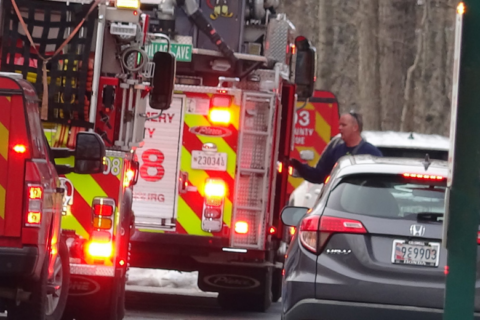Montgomery County Council committees are recommending that $5.1 million be dedicated to a range of services for migrant families seeking asylum in the Maryland county.
The council’s Education and Culture, and Health and Human Services committees were briefed on the status of 473 unaccompanied minors who have been placed with families or sponsors in Montgomery County between January and May 2021.
Before the council voted, members heard from representatives of school and social service agencies about the current status of new arrivals in Montgomery County.
“Most of the kids that we’ve interviewed have been abandoned, abused or neglected before the age of 18 by at least one of their biological parents. Teens also arrived at the United States border by themselves to escape gang violence or the threat of gang violence,” Celia Rivas with Catholic Charities said.
Even in cases when children are reunited with close family members when they arrive in the county, Rivas said, there can be stresses.
Periods of separation can lead to anxiety, depression and aggression in children. Behavioral changes reported included crying, irritability, appetite changes and lack of concentration.
Council member Nancy Navarro told the committee members, “I tried really hard not to get emotional as I’m listening to some of these descriptions.”
Speaking rhetorically, Navarro asked, “How do you not understand that this is God’s work that we have to do here?”
Navarro recommended that the council consider a long-term approach with establishing a permanent, comprehensive site to serve the needs “of our newcomer families.”
Council member Craig Rice agreed, saying, “This is just the starting point. This is something that we know we’re going to have to continue to respond to.”
A final vote on the funding for programs is expected on Tuesday.
Police reform
Montgomery County Police Chief Marcus Jones and Lee Holland, president of the Fraternal Order of Police Lodge 35, took part in a discussion on a police reform bill dealing with the review of video footage from police body cameras.
Holland told the members of the Public Safety Committee that his members “have fallen in love with these cameras” because officers believe that through the footage, “people are seeing what they see.” Holland said any officer in uniform should have a body camera.
Holland said not all officers have been issued body cameras, including plainclothes officers. That becomes a problem, he said, when plainclothes officers are assigned to special details, such as protests, where they work in uniform, but don’t have the cameras.
There is one group of officers who should not have to wear the body cameras, according to Jones — undercover officers.
“I believe it is highly risky,” said Jones, who’s worked undercover during his career with Montgomery County police. “It is already a very dangerous position … and I am adamantly against that.”
Council member Gabe Albornoz agreed with the chief and said he wanted to make clear that he would not support language in the bill calling for undercover officers to wear body cameras.
The bill under discussion also calls for random review of video footage collected on body cameras.
There is also language in the bill that looks to shorten the length of time the chief is required to report criminal activity to the county’s State’s Attorney’s Office. Current language gives the chief seven days to do that; proposed language suggests narrowing that window to 48 hours.
Chair of the Public Safety Committee and Council member Sidney Katz suggested another work session on the bill before bringing the legislation to the full council.








